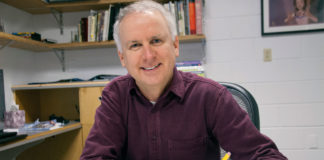Lou, the woman with no regrets left
Any sacrifice is hard to understand from the outside. But it's even harder to understand how sacrifice can be a choice that brings joy to the person making it. The easiest people to include in this category are, of course, mothers. For them, the sacrifices never seem too many or too hard. Even more amazing are those mothers who raise other people's unwanted...
Rich man, poor man: The exam right outside your door
There was a rich man who was dressed in purple and fine linen and lived in luxury every day. At his gate was laid a beggar named Lazarus, covered with sores and longing to eat what fell from the rich man’s table. Even the dogs came and licked his sores.
Forgiveness heals the one who forgives
Everyone thinks forgiveness is a lovely idea until he has something to forgive. – C.S. Lewis
The exclusive prayer: Who should we address when we pray?
The stakes are high when it comes to identifying the one to whom we should pray, and we can discover who by answering an apparently simple question: Can we expect prayers to be heard no matter who we address them to?
Louis Braille | The blind man who opened their eyes
Louis Braille said: "God was pleased to hold before my eyes the dazzling splendours of eternal hope. After that, doesn't it seem that nothing could keep me bound to the earth?"
Decoding Jesus’s cryptic message
Biblical interpretation is undoubtedly one of the greatest challenges for the Bible reader. What are the essential hermeneutical principles we need?
Pray as you can
I’m going to be honest with you. I find prayer really hard. If I had to give reasons for all my tears over the past few years, most of them have come during conversations with God.
The forgotten sign
On May 19th, 1780, a strange phenomenon turned a sunny morning into an unexpected night. The event, known as the Dark Day, was seen as a sign of divine judgment by contemporaries and as a means of ridiculing apocalyptic expectations by sceptics.
Old Testament and New Testament | The unity of Scripture
The Bible has 66 books written by different authors over about 1,500 years. Is there a common theme, a leitmotif? If so, which is it? Is there an Old Testament God and a New Testament God?
When sounds proclaim the glory of God
The year 1685 gave the world two of its greatest composers: Johann Sebastian Bach and George Friedrich Handel. The presence of the great biblical subjects in their masterpieces not only filled the hearts of believers with joy, but determined a new direction in the evolution of the musical language, which continues to have an impact to this day.
How to build (and how to dilute) a biblical worldview
According to a Barna Group poll, only 6% of Americans have a "biblical worldview", the percentage rising to just 21% for those who regularly attend evangelical churches. This shows that fewer and fewer Christians are turning to Scripture to answer the questions they face.
Decoding the EU’s connection to end times and Bible prophecy
With news that the far-right Freedom Party (PVV) has won the election in the Netherlands, once again there is talk of an exit from the European Union on the horizon—this time being called “Nexit”.
The light that can make whales fly
Hendel Butoy was born in Brazil and raised in southern California. He studied at the California Institute of the Arts, and was then offered a position as an animator at Walt Disney in 1979.
Christian education for children: How to teach your child to pray
For Christian parents, there is no greater concern than to provide their children with a Christian education. The first public demonstration of this concern is the blessing of children at young ages, in various ways: the baptism of children in traditional churches, or a simple prayer of blessing in Protestant churches. Dedicating their children to God, one way or another, gives parents a...
Love in action: Corrie and Betsie ten Boom
Many times we don’t have the patience to wait for an answer to our prayers, and other times we don’t even know when we've received it. For the ten Boom family, the answer to some prayers came 100 years later.


























